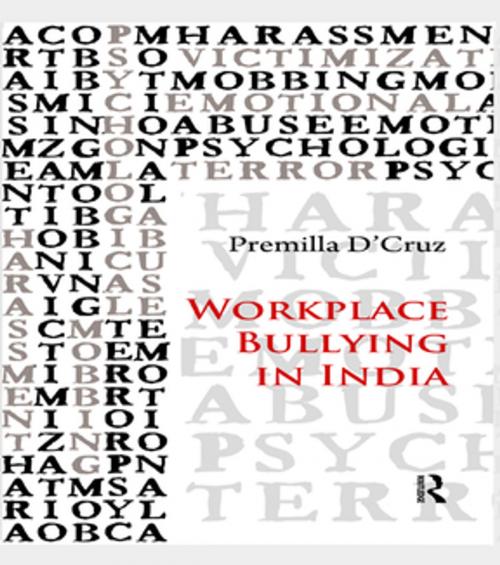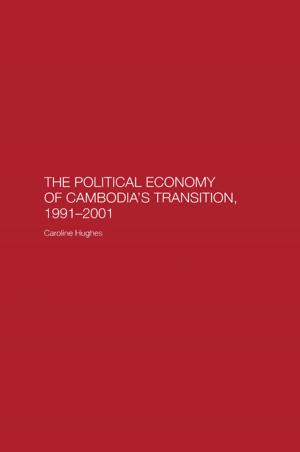Workplace Bullying in India
Business & Finance, Human Resources & Personnel Management, Organizational Behavior, Nonfiction, Social & Cultural Studies, Social Science, Anthropology| Author: | Premilla D'Cruz | ISBN: | 9781317809142 |
| Publisher: | Taylor and Francis | Publication: | March 21, 2014 |
| Imprint: | Routledge India | Language: | English |
| Author: | Premilla D'Cruz |
| ISBN: | 9781317809142 |
| Publisher: | Taylor and Francis |
| Publication: | March 21, 2014 |
| Imprint: | Routledge India |
| Language: | English |
Workplace bullying, a pattern of persistent and targeted emotional abuse within the context of an evolving unequal interpersonal relationship, has so far not received academic attention in India. This book explores the phenomenon of workplace bullying through a series of quantitative and qualitative inquiries conducted in India’s Information Technology-Enabled Services–Business Process Outsourcing (ITES-BPO) sector.
Through quantitative evidence from two multi-city surveys, the book highlights the incidence of interpersonal bullying at work and the organizational measures available to deal with it. Over one-third of the survey respondents experienced bullying, which was usually from superiors though cross-level co-bullying was also reported. Approximately 70 per cent of the survey respondents described organizational measures including anti-bullying policies, employee awareness and training programmes, encouragement of witnesses/bystanders to intervene in bullying situations, and organizational actions. Through qualitative data, the book provides insights into both interpersonal and depersonalized bullying. The lived experiences of targets and witnesses/bystanders of interpersonal bullying underscore the critical influence of human resources management (HRM) on target coping, the long-term identity work targets engage in as they respond to identity disruptions and the effect of workplace friendship on witnesses’/bystanders’ behaviour. The presence of institutionalized bullying facilitates the development of the emergent construct of depersonalized bullying. Across both quantitative and qualitative inquiries, the inclusion of socio-cultural, micro-organizational, macro-organizational, and business, dimensions deepens our understanding.
The book goes beyond a country-specific contribution to address gaps in the international literature on workplace bullying and will be of interest to academics and practitioners in the fields of management, organizational behaviour (OB), human resources (HR), industrial relations, psychology, sociology, anthropology, and law as well as to the general reader.
Workplace bullying, a pattern of persistent and targeted emotional abuse within the context of an evolving unequal interpersonal relationship, has so far not received academic attention in India. This book explores the phenomenon of workplace bullying through a series of quantitative and qualitative inquiries conducted in India’s Information Technology-Enabled Services–Business Process Outsourcing (ITES-BPO) sector.
Through quantitative evidence from two multi-city surveys, the book highlights the incidence of interpersonal bullying at work and the organizational measures available to deal with it. Over one-third of the survey respondents experienced bullying, which was usually from superiors though cross-level co-bullying was also reported. Approximately 70 per cent of the survey respondents described organizational measures including anti-bullying policies, employee awareness and training programmes, encouragement of witnesses/bystanders to intervene in bullying situations, and organizational actions. Through qualitative data, the book provides insights into both interpersonal and depersonalized bullying. The lived experiences of targets and witnesses/bystanders of interpersonal bullying underscore the critical influence of human resources management (HRM) on target coping, the long-term identity work targets engage in as they respond to identity disruptions and the effect of workplace friendship on witnesses’/bystanders’ behaviour. The presence of institutionalized bullying facilitates the development of the emergent construct of depersonalized bullying. Across both quantitative and qualitative inquiries, the inclusion of socio-cultural, micro-organizational, macro-organizational, and business, dimensions deepens our understanding.
The book goes beyond a country-specific contribution to address gaps in the international literature on workplace bullying and will be of interest to academics and practitioners in the fields of management, organizational behaviour (OB), human resources (HR), industrial relations, psychology, sociology, anthropology, and law as well as to the general reader.















